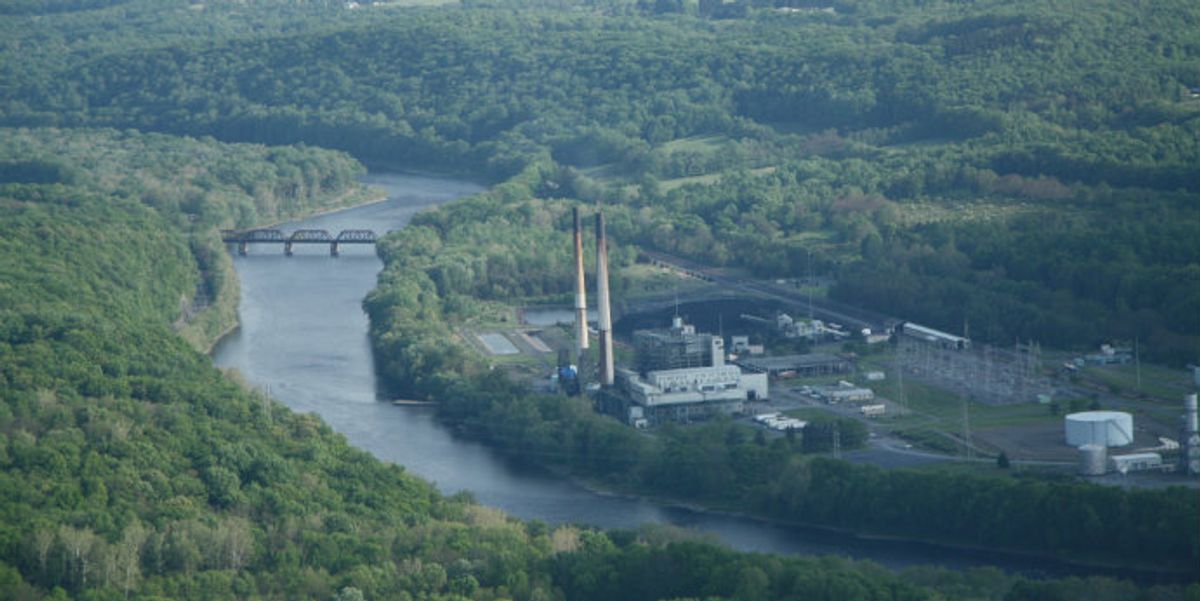
Want healthier babies? Shut down coal plants
Two studies in the past month show significantly fewer health risks for babies after nearby coal plants close
Babies born near an active coal plant in China had shorter telomeres—sections of DNA that act as caps on the ends of chromosomes—than babies born after the plant shut down, according to a study released today.
The study is the first to show toxics from coal burning may spur shorter telomeres in newborns and adds to a massive body of evidence that closing down plants gives babies a greater chance at a healthy life. Shorter telomeres are linked with a host of health problems, including cancer, heart disease, brain decline, aging and premature death.
"This is a good news story," said lead author, Frederica Perera, a professor and researcher at the Columbia University Mailman School of Public Health and the Columbia Center for Children's Environmental Health. "The benefits of policies that close down plants are reflected at the molecular level."
The findings come just weeks after a similar report found after a Pennsylvania power plant stopped burning coal and sending toxic air into nearby New Jersey, babies' birth weights returned to healthy levels and more pregnant women carried babies full-term. When the plant—the Portland Generating Plant—burned coal, pregnant women downwind had high rates of pre-term births and babies with low birth weights.
"The plant used coal without any scrubbers, this was a pretty dirty coal-fired power plant," said lead author of the study, Muzhe Yang, a researcher and associate professor of economics at Lehigh University.
"New Jersey was the victim of the air pollution."
Leaving "fingerprints on DNA"
For the China study, published in the Environment International journal, Perera and colleagues checked the telomere length of 255 newborn babies near Tongliang, China—half the babies were born before a coal plant closed in May 2004, and half were born after.
In babies born while the plant was still pumping out dirty air, they found high levels of polycyclic aromatic hydrocarbons (PAH) binding to segments of the babies' DNA.
PAHs—chemicals from burning coal, oil, gas or wood—are toxic and can cause cancer, breathing problems, kidney or liver damage or a hampered immune system. Babies who had these toxics binding to their DNA were more likely to have shorter telomeres compared to babies not exposed to coal burning. The researchers previously reported the babies born after the coal plant had closed had increased levels of a protein that helps brain development.
"PAHs leave a fingerprint on DNA," Perera said. "That kind of damage on DNA could lead to mutations or cancer if the damage isn't repaired in time."
Babies' telomere length can influence their risk for disease decades later when they're adults, said senior author of the study, Deliang Tang, a professor of environmental health sciences at the Mailman School.
Tang said they examined the coal plant in China because this was the early 2000s when the country was undergoing "very rapid industrialization."
"We wanted to convince policymakers to not go through what the U.S. went through and curb pollution early," he said.
Dangers downwind
Perera and Tang's study comes on the heels of Yang's study of New Jersey babies, in which he reported the shutdown of Pennsylvania's Portland Generating Plant reduced the chance of downwind mothers (within about 60 miles of the plant) having a low birth weight baby by about 15 percent and reduced the chance of a preterm birth by about 28 percent.
Babies born with a low birth weight are prone to poorer health, education and earnings later in life, Yang said.
Yang and colleagues pinned babies' improved health after the coal plant shutdown on decreased levels of another coal pollutant, sulfur dioxide (a precursor to particulate matter).
Prior to the shutdown the plant was the fifth highest sulfur dioxide emitter in the U.S.—more that 30,000 tons annually, which is more than double the amount from all electricity plants in New Jersey per year.
The study was the "first to show fetal health improvement as a result of shutting down a large air polluter leading to a drastic reduction of [sulfur dioxide] emissions," wrote the authors in the study published in the Journal of Environmental Economics and Management.
Though the two studies on coal plant shutdowns focused on different pollutants, Tang said people—and babies—are "never exposed to a single chemical."
"We're measuring PAHs but the effect is not from PAHs alone, it may be a combination of many other pollutants," he said.
Yang said the New Jersey study suggests a need to re-examine how energy sources are regulated in the U.S.
"Pollution is regulated state by state. We care about jobs, taxes, but downwind states pay the cost of air pollution," he said.
"There's no border for wind, it'll go anywhere."














